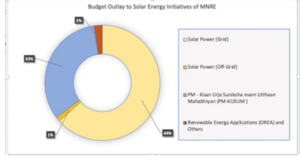G20 Climate Declaration Falls Short on Fossil Fuels.
Relevance
- GS 3: Conservation, Environmental Pollution and Degradation, Environmental Impact Assessment.
- Tags: #CriticalMinerals #GreenFuels #FossilFuels #G20Summit #BusinessStandards #UPSC #CurrentAffairs.
Why in the News?
The recent G20 Summit Declaration touched on important aspects of climate action, including renewable energy and green growth. However, it fell short in addressing fossil fuel elimination, a critical issue for combating climate change.
G20 Leaders’ Failure to Commit to Fossil Fuel Phase-Out
The Delhi Declaration, endorsed by the G20, emphasized key topics such as inclusive growth, sustainable development goals, and green development for a sustainable future.
- It highlighted renewable energy, energy efficiency targets, and energy transition objectives.
- However, the declaration didn’t significantly expand on the Bali outcome concerning the phase-out of fossil fuels.
- The G20 leaders acknowledged the need to substantially increase funding for climate transition efforts.
- They expressed support for tripling global renewable energy capacity by 2030.
- However, the G20 leaders’ statement notably omitted any commitment to the critical phase-out of all fossil fuels.
- Instead, they referred to “accelerating efforts towards the phasedown of unabated coal power,” taking into account national circumstances and emphasizing the need for support for just transitions.
G20 Declaration’s Emphasis on Renewable Energy and Beyond
- Renewable Energy Focus: The Declaration emphasizes the use of renewable energy, which means energy from sources like sunlight and wind, as part of a plan to reduce pollution.
- Other Clean Technologies: Besides renewable energy, the Declaration also supports other methods to reduce pollution, like technologies that help remove pollutants or use cleaner fuels.
- Honoring Critical Minerals: The mention of “critical minerals” and “green fuels” in the Declaration indicates that these topics received acknowledgment or recognition, even though they may not have been the primary focus of the document.
- India’s Role: India wants to create its own way to get critical minerals and export clean fuels, showing its commitment to a greener future.
- India has been a strong proponent of incorporating hydrocarbons, which includes oil and gas, into the G20’s strategy for reducing carbon emissions.
Coal Phase-Down, Not Phase-Out
- Home to 93% of global coal power plants, the G20 promised a “phase down” of coal power instead of a more ambitious “phase out,” drawing criticism.
Mixed Reactions
- Climate activists and experts praised some progress but criticized the G20’s overall commitments as insufficient.
- They called for a just transition away from fossil fuels and greater emissions reductions from wealthy nations.
Climate Financing
- The Declaration highlighted the need for a second replenishment process for the Green Climate Fund (GCF) for its 2024-2027 programming period.
- In a significant move, the UK government made headlines by announcing a substantial $2 billion contribution to the GCF.
- This commitment is the UK’s largest single funding contribution towards addressing climate change, as per an official statement.
G20 Divisions on Fossil Fuels and Climate Goals
- Saudi Arabia, a G20 member heavily reliant on oil exports, has consistently opposed phasing out fossil fuels.
- Inclusion of Alternative Technologies – Saudi Arabia only accepted language on renewables when the text included mention of other low-emission technologies, like carbon capture and storage, which are still largely unproven.
- Disagreement Over IPCC Findings – Another contentious point was how to incorporate the IPCC’s findings that global emissions must peak “by 2025 at the latest.”
- The declaration now acknowledges that limiting global warming to 1.5°C necessitates significant, immediate, and sustained reductions in emissions, aiming for a 43% reduction by 2030 compared to 2019 levels.
Setting the Tone for COP28
- The G20’s decisions could influence the tone of the upcoming U.N. climate talks (COP28) in Dubai in late November. Analysts emphasized the need for a strong fossil fuel phase-out goal
How important to Phase out Fossil Fuels?
UN’s Call for Net-Zero Emissions by 2050
The United Nations had just pronounced it “essential” to phase out fossil fuels in order to reach a net-zero objective, but G20 leaders chose not to agree to this.
- The first UN progress report on the Paris Agreement climate targets stressed the need for both a major growth in renewable energy sources
- the phase-out of fossil fuels with unrecoverable emissions in order to achieve net-zero carbon emissions by 2050.
Emphasis on Renewable Energy and Fossil Fuel Phase-Out
- The UN Global Stocktake underlined the importance of scaling up renewable energy and phasing out all unabated fossil fuels as essential elements for just energy transitions towards net-zero emissions.
The IPCC’s recommendations on fossil fuels include
- Phasing out coal by 2050 at the latest.
- Halving oil production by 2030
- Reducing gas production by a quarter by 2030.
- Investing in renewable energy and energy efficiency.
- Putting a price on carbon.
G20’s Significance in Global Climate Action
- It is important to note that G20 countries collectively contribute to 85% of global GDP and a similar share of global climate warming emissions.
- Consequently, their actions and commitments in the forum hold significant weight in advancing global climate progress.
Rise in Per Capita Coal Emissions
- Recent research has revealed that per capita coal emissions within the G20 have increased by 9% since 2015.
- This increase has been primarily driven by countries like India, Indonesia, and China, despite transition efforts by some member nations.
The G20 Summit’s Delhi Declaration has shown positive signs in addressing climate issues, emphasizing renewable energy, energy efficiency, and critical minerals. However, it falls short in addressing fossil fuel abatement, with a focus primarily on coal phasedown. To truly combat climate change, a more comprehensive approach is needed, including transitioning away from all fossil fuels.
Source: Business Standard, Reuters.
Mains Question
Critically evaluate the G20’s stance on fossil fuel abatement, especially in relation to coal phasedown. What are the concerns raised by experts regarding this aspect of the declaration, and how might it impact India’s energy policies?




